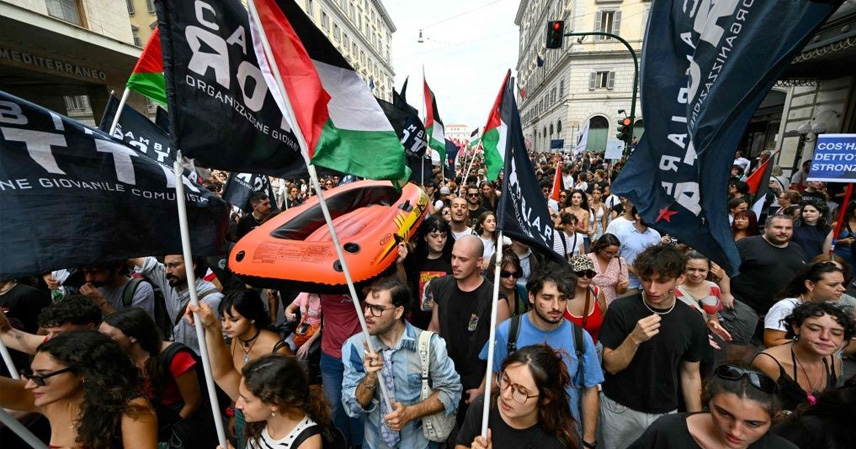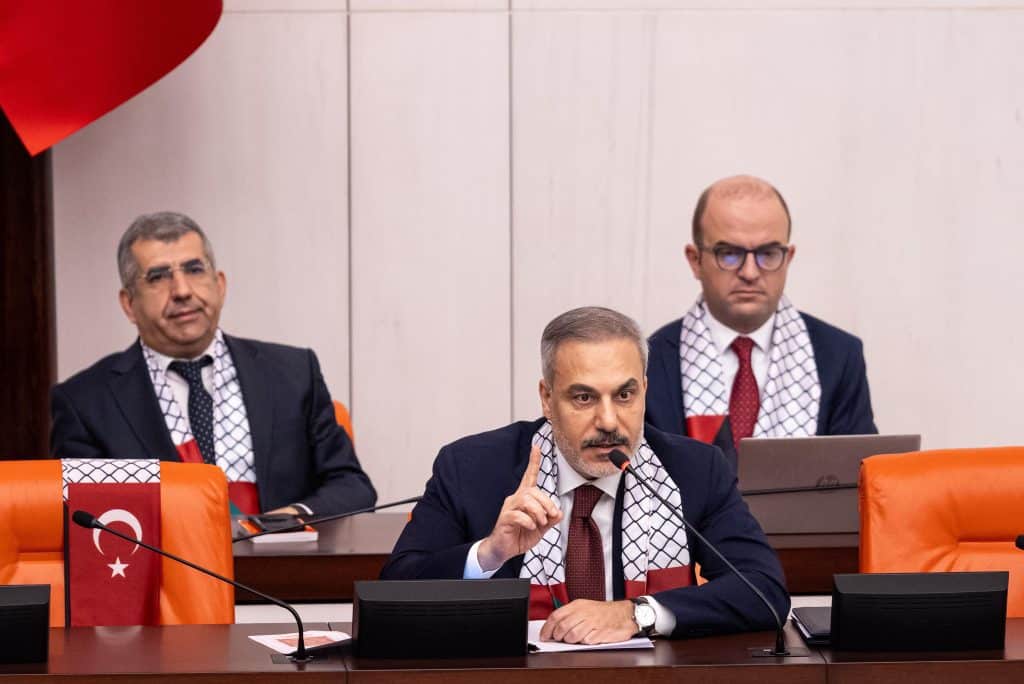On September 22, Italy witnessed one of its largest demonstrations in recent years, after Prime Minister Giorgia Meloni rejected following other Western nations in recognizing Palestine. In 75 cities, nearly 100,000 people took to the streets, some holding banners and chanting, others going on strike. Milan’s central train station became a “main battleground,” with riot police on high alert and protesters throwing objects, setting up barricades, and damaging facilities.
The contrast with other nations is striking. The UK, Canada, Australia, and Portugal have already recognized Palestine, while Italy has chosen to stand apart, fueling public anger.
Meloni’s Hardline Position
Meloni’s stance is deeply tied to her Brothers of Italy party, which shares roots with Europe’s far-right and has consistently supported Israel. As early as May 2023, the party pledged to “firmly ensure Israel’s security.” While Italy speaks of humanitarian aid to Gaza, it refuses to recognize Palestine as a state.
At a time when the international community is focused on the humanitarian crisis in Gaza, Italy’s decision to oppose the majority position has left many Italians feeling humiliated and frustrated, sparking protests.
Protesters’ Demands
The demands are clear:
- Stop sending weapons to Israel
- Officially recognize Palestine
- Provide urgent humanitarian aid to Gaza
The protests were organized by labor unions, which called for a 24-hour nationwide strike, merging domestic grievances with foreign policy anger. Italy’s stagnant economy, shrinking welfare, and rising living costs had already fueled widespread discontent, as seen in a nationwide strike in November 2023.
Mounting International Pressure
International pressure is also escalating. The UN recently issued a report labeling Israel’s actions in Gaza as “genocide.” With the UN General Assembly about to convene, Italy’s alignment with Israel risks putting the country “on the grill.”
Within the EU, Italy’s position is increasingly isolated. French President Emmanuel Macron has vowed to recognize Palestine at the UN, while Germany insists that a “two-state solution” is the only path forward. Italy, by contrast, looks like an outlier, losing both European allies and global credibility.
Meloni’s Dilemma
Meloni has tried to balance her rhetoric, alternating between promising to “push for a ceasefire and humanitarian aid” while insisting it is “not the time to recognize Palestine.” This double-sided strategy is pleasing neither side.
Meanwhile, her approval ratings are already slipping. If she continues to ignore public anger, the protests are likely to escalate further, threatening the stability of her government.
Conclusion
In the end, a government cannot ignore the will of its people. Meloni’s refusal to adapt risks not only diplomatic isolation but also domestic instability. If she continues to oppose both international consensus and her own citizens, the consequences may shake the very foundation of her rule.
References
- Italian press reports on September 22 protests
- UN reports on Gaza humanitarian crisis



